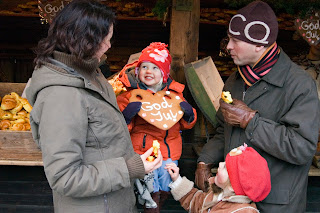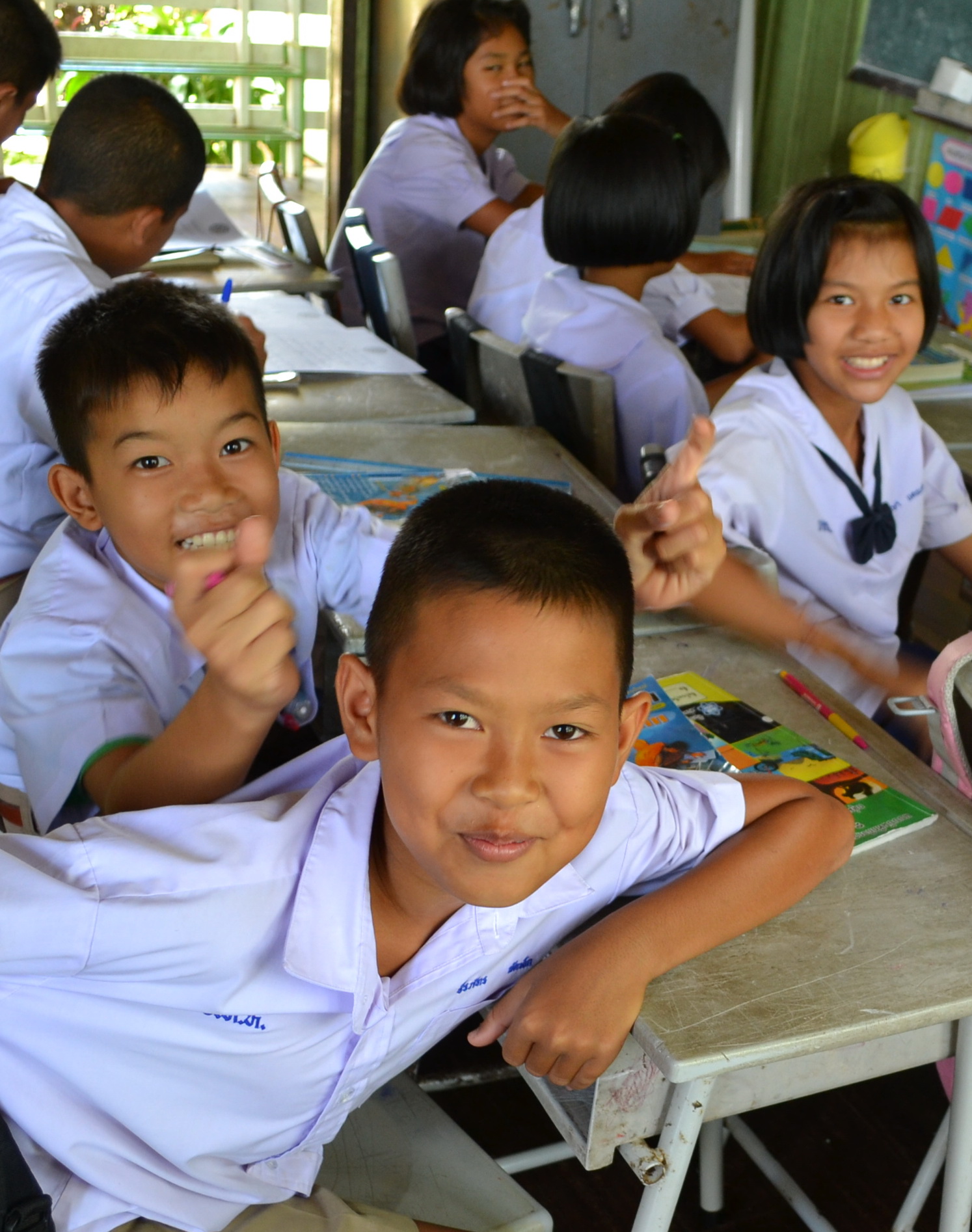1. Summary
Humans are, by nature, social creatures.
Socialization allows humans to achieve 3 main objectives. The first is control
of our own instinctual impulses and through that we develop a conscience. The
second is to integrate ourselves into the society, by preparing for our
respective societal roles, which include occupational, gender and social group
roles (marriage/family). Finally, the third objective is that of values, where
we learn what is important in society, what we live our lives for and what it
means to be human.
Image A: Social Group - Family (By Marie Andersson Skansen (Own work) [CC BY-SA 3.0 (http://creativecommons.org/licenses/by-sa/3.0)], via Wikimedia Commons)
Socialization can then be subdivided into
the various cultures around the world, where each and every one of them affect
the way we socialize. While it is true that socialization is a key process by
which individuals develop, there are certain skills/traits that seem to be
innately possessed by human beings. Empathy for the injured and morality are
but 2 aspects of human behavior that may be biologically determined instead of
learned. In this sense, there is still a debate on the roots of human behavior,
whether it is nature or nurture, or even nurture-induced-nature.
There is an overall division of
socialization, even amongst the various cultures, and it is that of Primary and
Secondary Socialization. Primary Socialization occurs in the childhood portion
of life, while Secondary Socialization occurs in the period after one’s
childhood, all the way till the end. The common theory is that Primary
Socialization molds one’s core identity, and Secondary Socialization develops
it through the individual’s reactions in social situations.
Image B: Social Group - Friends (By ผู้สร้างสรรค์ผลงาน/ส่งข้อมูลเก็บในคลังข้อมูลเสรีวิกิมีเดียคอมมอนส์ - เทวประภาส มากคล้าย (Own work) [CC BY 3.0 (http://creativecommons.org/licenses/by/3.0)], via Wikimedia Commons)
Another form of division in socialization
is Broad and Narrow Socialization, with the two terms referring to the range of
outcomes certain types of socialization can result in. Broad Socialization
deals with the more individualistic aspects such as self-expression, while
Narrow Socialization deals with how one reacts with others, affecting aspects
such as obedience and conformity.
When a member of society is unable to
socialize according to the ways society deems proper, they will be subjected to
a Total Institution, where they are taught how to socialize properly. Their daily
activities are strictly controlled, everyone is treated the same way by a
distinct authority, and their future is often kept unbeknownst to them.
Image C: Total Institution - Prison (By Stiopa (Own work) [CC BY-SA 4.0 (http://creativecommons.org/licenses/by-sa/4.0)], via Wikimedia Commons)
There are four main theories that attempt
to describe the way humans develop social skills:
- Symbolic Interactionism explains social development as the learning and interpreting of situations, and thus is a process that continues throughout one’s life.
- Role Theory sees individuals as part of a social organization, attempting to acquire the necessary skills and beliefs to be able to integrate into the society smoothly.
- Reinforcement Theory sees social development as a learning process, where one has to constantly decide which skills are beneficial or detrimental to their social needs, and continuously develops those skills actively.
- Internalization Theory describes social development as a series of stages that one navigates throughout their life, picking up (internalizing) skills related to each stage.
2. Something of interest to me
I think that analyzing the process that
human beings acquire social skills and attempt socialization can be made more
in-depth by looking at the cultural environment. Depending on the type of
culture one is immersed in during the different stages of life, those cultures
can affect social development in various ways. Eastern culture may not be as
socially diverse as Western cultures, as some are more conservative. The theories
of social skill development do not have to apply in the same way when studying
subjects of different cultural contexts.
Image D: Cultural Diversity - Flags before UN Building, Geneva (By Yann (talk) 14:23, 28 March 2009 (UTC) (Own work) [GFDL (http://www.gnu.org/copyleft/fdl.html), CC-BY-SA-3.0 (http://creativecommons.org/licenses/by-sa/3.0/) or CC BY-SA 2.0 (http://creativecommons.org/licenses/by-sa/2.0)], via Wikimedia Commons)
3. Discussion Point
With regards to the case of feral children,
maybe the investigation can be focused more on how a functional society is able
to create such dysfunctional parents. I understand that it is of utmost
importance that the feral child is taken care of and slowly integrated into
normal society, but if we do not get to the root of the problem, we will not be
able to prevent the situation where a feral child is created in the first
place.




No comments:
Post a Comment